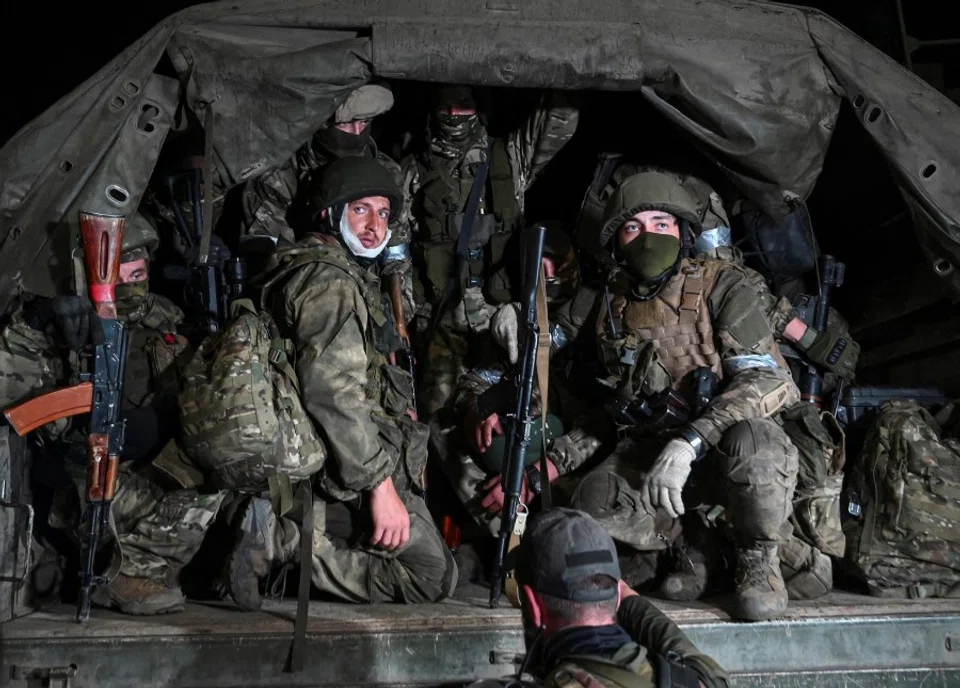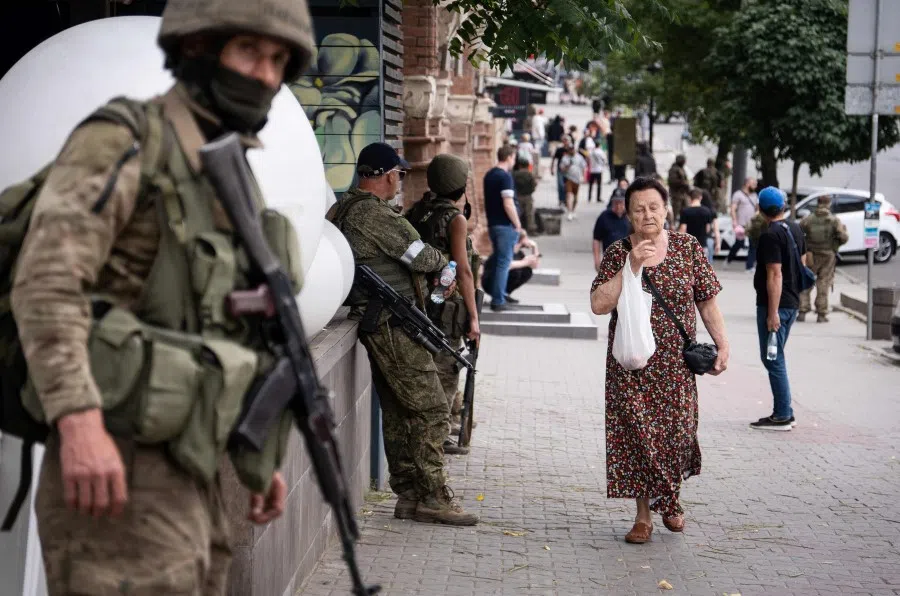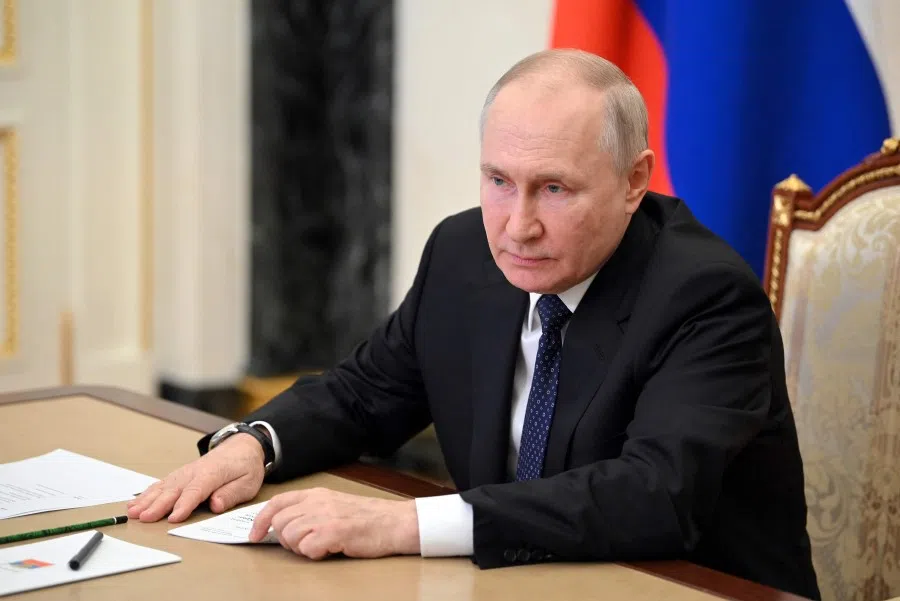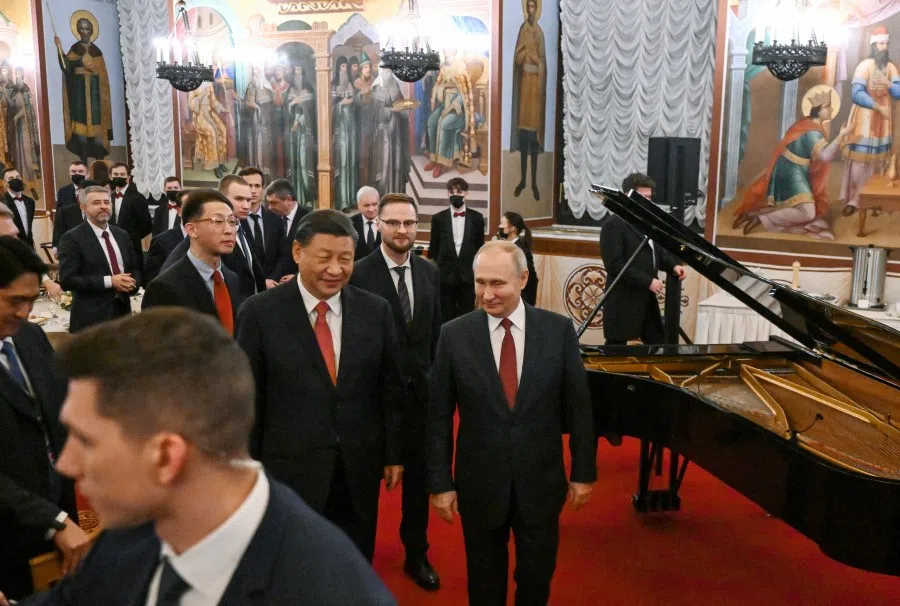Wagner's failed mutiny and China-Russia relations: Not weakness but strength
While some analysts say that the Wagner mutiny has revealed a weak Russia, China and other authoritarian regimes may see President Putin's actions and outcomes achieved as an affirmation of strength. Academic Alexander Korolev explains.

On 24-25 June, the world observed thousands of Wagner mercenaries, led by their boss Yevgeny Prigozhin, marching on Moscow, practically blockading the Russian city of Rostov-on-Don and sending convoys, including tanks and BM21Grad rocket launchers around the city of Voronezh. However, the mutiny ended before even the most seasoned Russia watchers could come up with assessments. The group decided to turn around less than 300 km from the Russian capital, announced disintegration, and its leader allegedly disappeared in Belarus.
The incident triggered various speculations about the stability of Putin's regime and its implications for China-Russia relations. However, while the Western observers were quick to announce deep cracks in Putin's grip on power, another story, according to which the incident might indicate Putin's strength, is likely to be more popular in China.
The two narratives of Wagner's mutiny
Interpreting political events is extremely challenging because the same limited evidence can be inserted into different narrative frameworks. Many Western commentators and policymakers rushed to welcome the weakening of Putin's regime. Putin was called a "weak" and "vulnerable" leader of a "fragile" political system. This weakness is anticipated to corrode the Russian military's fighting power in Ukraine and shake alignment with China. Within this narrative, Beijing will re-evaluate its partnership with Moscow and take a more cautious stance on Russia.
The logic of this narrative is straightforward: regardless of whether Prigozhin wanted to topple Putin, attract attention to Russia's problems in Ukraine, or perhaps get a bigger remuneration for fighting in Bakhmut, heavily armed mutineers roaming Russia's major cities without Putin's endorsement is an unequivocally defiant act revealing the weakening of the regime.

If authoritarian leadership's grip on power weakens, the political regime stability becomes uncertain, which makes the country's strategic partners and allies reassess their relationship with the regime. States do not want to invest in a relationship with a regime that may fall or be replaced by another one that might turn against them. Thus, Beijing should be legitimately concerned about the potential fall of Putin's regime and its replacement with a pro-Western leadership. Unsurprisingly, some Chinese experts suggested that after the Wagner mutiny, China "will be more cautious with its words and actions about Russia".
From this standpoint, Putin has demonstrated significant leadership capabilities - he managed to stop Russia's most effective fighting force without actual fighting, a nationwide state of emergency, or support from outside.
However, an equally compelling but entirely different narrative can be developed, namely that Putin has successfully proved to elites and foreign partners that he can effectively handle enormous challenges to the country.
Widely held political science theories suggest that due to the lack of competitive elections and other democratic institutions that serve as a valve to release political pressure, authoritarian regimes occasionally face collusion, rebellions, coup d'état, mutinies and other non-institutional attempts to challenge or replace the leadership. Often these attempts end up in significant violence. Authoritarian leaders' legitimacy depends on their capacity to suppress, prevent or mitigate these challenges.
From this standpoint, Putin has demonstrated significant leadership capabilities - he managed to stop Russia's most effective fighting force without actual fighting, a nationwide state of emergency, or support from outside. Moreover, he compelled the Wagner group to dissolve, allegedly sent its boss to Belarus, and persuaded many Wagner "volunteers" to sign contracts with the Russian Ministry of Defence.

Not all authoritarian leaders can boast this level of effectiveness. In Kazakhstan, President Kassym-Jomart Tokayev had to ask the Collective Security Treaty Organisation for help when his power was challenged by the 2022 Kazakh unrest, during which hundreds of people were killed before political stability was restored. Similarly, when on 15 July 2016, a faction within the Turkish Armed Forces, organised as the Peace at Home Council, attempted a coup d'état against the government and President Recep Tayyip Erdogan specifically, a state of emergency was declared, and more than 300 people were killed in deadly fights before Edogan's grip on power was reinstated.
Some Russian sources even claim Putin's support rate hit 90% after the Wagner mutiny.
Against this record, and given that Russia is at war with Ukraine, Putin's overall non-violent tackling of the Wagner incident is an impressive political achievement. Some Russian sources even claim Putin's support rate hit 90% after the Wagner mutiny.
China's perspective and China-Russia relations
China will likely look at the incident through the lens of the second narrative above. Beijing formally expressed support for Putin in maintaining national stability. At the same time, Chinese state-run media started constructing a narrative that glorifies Putin's effectiveness as a leader and largely dismisses the notion that Wagner's mutiny undermined Putin's standing. Some state-run tabloids have praised Putin's "decisive actions" and "strong capacity of deterrence", which will further increase the regime's authority.
Many Chinese experts believe the US is using the Ukraine war to encircle China. Therefore, Beijing wants to stand by Moscow to prevent the US from winning.
Such a reaction is quite common among authoritarian regimes. Venezuela's Nicolás Maduro also announced that Putin had effectively blocked the rebellion attempt and emerged as a winner. The Cuban leader, Miguel Díaz-Canel, made similar assessments, who stated that his country had no doubts about Putin's capacity to handle the challenge.

Putin and Xi Jinping are the leaders of the two largest authoritarian states in the world. Therefore, as some Chinese scholars argued, Xi's and Putin's political fates are intertwined as they share the goal to reshape the US-led international order to make it safer for autocracies and the survival of their regimes. Recent research based on interviews with Chinese analysts and strategists demonstrates that Beijing looks at the war in Ukraine through the lens of its own confrontation with the US. Many Chinese experts believe the US is using the Ukraine war to encircle China. Therefore, Beijing wants to stand by Moscow to prevent the US from winning.
That China continues business as usual with Russia is borne out by the two countries' attempt to deepen military ties in the immediate aftermath of the Wagner mutiny. The Russian Navy commander, Admiral Nikolai Yevnemov, visited China on 3 July 2023 and met with China's defence minister, General Li Shangfu. Yevnemov visited Chinese military shipyards, naval bases and navy academies, as well as Russian troops on a port call in Shanghai as a sign of deepening military cooperation. The sides are reported to exchange opinions regarding strengthening naval cooperation in the Asia-Pacific. A few days later, China and Russia conducted joint naval exercises in the Sea of Japan, sending a strong signal to the US and its allies.
... China is unlikely to let the Wagner incident undermine its partnership with Russia or affect China-Russia relations in other regions.
On 4 July 2023, Putin participated in the Shanghai Cooperation Organisation (SCO) summit and reassured the SCO member states of the stability of Russia's political regime. He hailed that more than 80% of trade between China and Russia was now in roubles and yuan and urged other SCO members to follow the example. Xi, in turn, mentioned the importance of safeguarding regional peace and security and urged SCO members to "enhance their solidarity and mutual trust", At the same time, including Iran as a full member at the summit - something that could hardly have happened without China's and Russia's approval - pitted SCO against the West more explicitly.
As can be judged by the consolidating narratives inside China, the outcomes of the SCO summit, and the actual materialisation of China-Russia partnership, China is unlikely to let the Wagner incident undermine its partnership with Russia or affect China-Russia relations in other regions.


![[Big read] When the Arctic opens, what happens to Singapore?](https://cassette.sphdigital.com.sg/image/thinkchina/da65edebca34645c711c55e83e9877109b3c53847ebb1305573974651df1d13a)


![[Video] George Yeo: America’s deep pain — and why China won’t colonise](https://cassette.sphdigital.com.sg/image/thinkchina/15083e45d96c12390bdea6af2daf19fd9fcd875aa44a0f92796f34e3dad561cc)